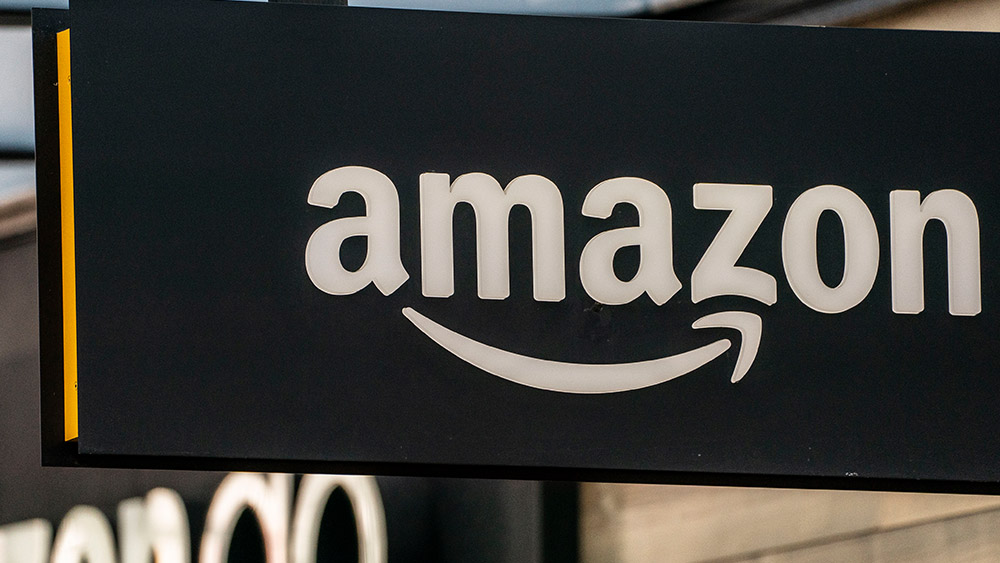Jack Dorsey’s Bitchat pioneers peer-to-peer messaging beyond the internet
07/12/2025 / By Willow Tohi

- Bitchat, a Bluetooth-based messaging app developed under Jack Dorsey’s Block, enables secure offline communication without internet or centralized servers.
- The decentralized platform uses mesh networking to create autonomous chat clusters, encrypting messages for privacy and resisting censorship.
- Unlike Meta’s WhatsApp or Signal, Bitchat avoids data collection and operates registration-free, focusing on resilience for crisis scenarios.
- The app is in iOS beta testing, with plans for WiFi support; however, independent security audits remain pending.
- The debut signals a broader tech movement toward off-grid, user-controlled communication amid distrust of centralized platforms.
In July, Block CEO Jack Dorsey unveiled Bitchat, a groundbreaking messaging app designed to operate entirely offline through Bluetooth mesh networking. The free, encrypted platform eliminates reliance on internet infrastructure, marking a radical departure from mainstream services like WhatsApp or Signal. By enabling peer-to-peer (P2P) communication within 30-meter ranges and beyond via relay devices, Bitchat aims to empower users in disaster zones, areas of digital censorship and crowded events where connectivity is unreliable. Critics of centralized tech giants praise its focus on privacy, while analysts warn of potential technical limitations pending further testing.
Technical breakdown: How Bluetooth mesh builds a network without cloud servers
At its core, Bitchat utilizes Bluetooth Low Energy (BLE) to form decentralized networks where each device acts as both a node and a relay. Messages are fragmented into 500-byte packets for reliability, encrypted end-to-end and stored temporarily only on users’ devices. A white paper reveals the system’s store-and-forward mechanism, which caches messages until recipients are online. To expand coverage, bridge devices connect isolated clusters, creating a dynamic mesh network. Notably, the app requires no accounts, phone numbers, or email addresses — users join chatrooms via hashtags and password protection optional.
Dorsey described the interface as having “IRC vibes,” referencing early internet chatroom simplicity. “This is about building technology that serves users, not advertisers,” he stated during an X post announcing the beta.
Privacy and anonymity: A direct challenge to centralized platforms
Bitchat’s design philosophy starkly contrasts with profit-driven competitors like Meta’s WhatsApp, which monetize user data. “No information is sent to servers — because there are no servers,” the white paper emphasizes. The app automatically discards messages after temporary retention, eliminating corporate or government access points.
Privacy advocates applaud this approach, particularly amid rising concerns over surveillance and data tracking. “Bitchat reclaims control over digital interactions,” said a Block spokesperson. “It’s a return to the internet’s grassroots principles of decentralization and autonomy.”
Challenges and future prospects: Balancing innovation with practical limits
Despite its promise, Bitchat faces hurdles. Speed is limited to text-only messaging, excluding media files without WiFi upgrades. Currently confined to iOS, the beta’s security has not yet undergone third-party audits, raising concerns about vulnerabilities.
Dorsey hinted at future enhancements, including WiFi compatibility to boost bandwidth while maintaining privacy. The team plans to open-source the code for community review, a move he called “absolutely essential to building trust in decentralized systems.”
A new wave of decentralized communication tools
Bitchat aligns with a growing shift toward off-grid, user-controlled technologies. Protocols like IPFS and blockchain have long championed decentralization, while browsers like Beaker experiment with peer-to-peer web experiences. “This isn’t just about apps — it’s a movement,” explained decentralization advocate Michelle Zatopek. “After years of tech giants profiting from surveillance, users are demanding tools they can trust without permission.”
A new era of autonomous communication
As Bitchat’s beta tests unfold, it underscores a critical question: Can decentralized platforms outperform centralized ones in reliability and privacy? For those skeptical of corporate overreach, Dorsey’s experiment offers hope. However, widespread adoption hinges on addressing technical constraints and earning user confidence through transparency. In an era of internet outages, censorship and data exploitation, Bitchat’s simple mantra — “communicate without consent” — may resonate far beyond its mesh networks.
Sources for this article include:
Submit a correction >>
Tagged Under:
Big Tech, Bitchat, block, breakthrough, computing, cyber war, decentralized communication, freedom, future science, future tech, gear, Glitch, information technology, internet, inventions, Jack Dorsey, Liberty, messaging app, offline communication, privacy watch, progress, surveillance, tech giants, technocrats
This article may contain statements that reflect the opinion of the author
RECENT NEWS & ARTICLES
COPYRIGHT © 2017 FUTURETECH.NEWS
All content posted on this site is protected under Free Speech. FutureTech.news is not responsible for content written by contributing authors. The information on this site is provided for educational and entertainment purposes only. It is not intended as a substitute for professional advice of any kind. FutureTech.news assumes no responsibility for the use or misuse of this material. All trademarks, registered trademarks and service marks mentioned on this site are the property of their respective owners.


















